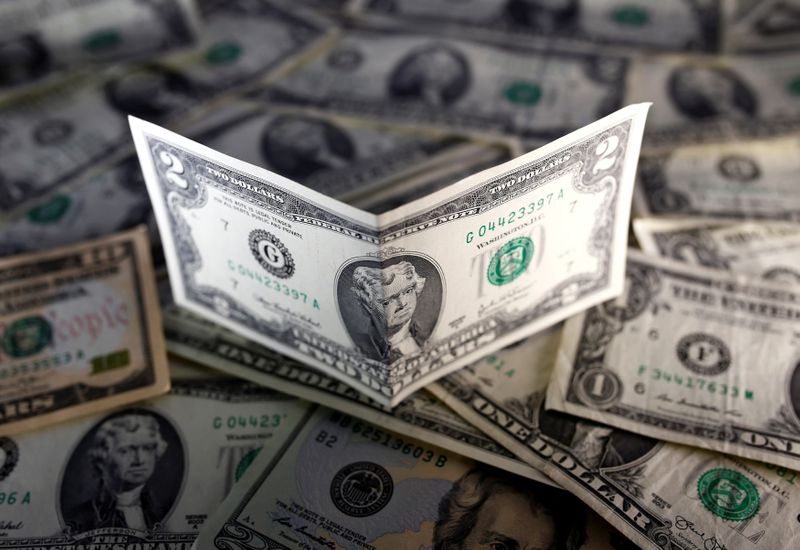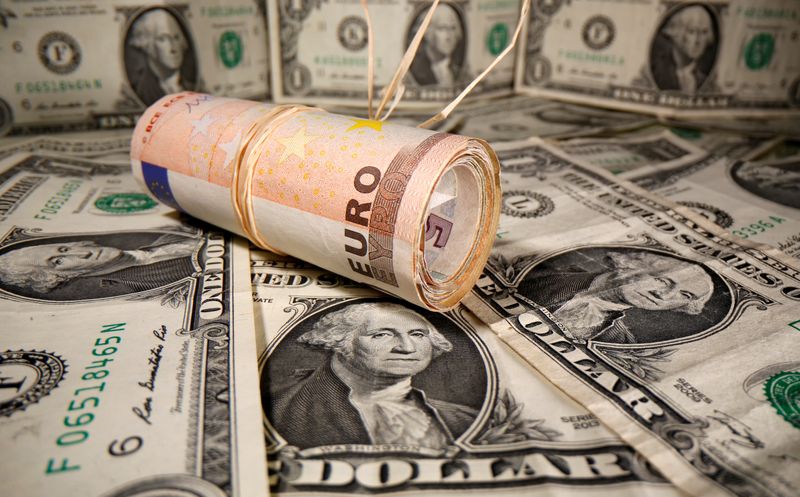NEW YORK (Reuters) – Fears of a second wave of coronavirus infections have increased demand for safe-haven assets, driving the U.S. dollar on Friday to its best weekly gain in a month.
Markets this week have been focused on an uptick in coronavirus cases in many U.S. states, as well as new infections detected in Beijing, raising fears of a return to global lockdowns. The world’s reserve currency, which made small advances in the North American session, gained 0.54% this week against a basket of currencies, its best performance since mid-May.
The dollar index was up 0.18% to 97.61 in afternoon trade, close to its highest levels since June 2.
“With COVID-19 and how it relates to the economy, we know that this thing is not going to go away and we’re going to have to learn how to cope with this. So with that comes a bit of risk in the market,” said Juan Perez, senior foreign exchange trader and strategist at Tempus, Inc.
“There was this belief that the recovery would be strong economically, but there’s hesitation because it does seem like we have a lot of separation in terms of states.”
He added, however, that the enormous impact on the American economy compared with the rest of the world would ultimately weigh on the dollar, in spite of its safe-haven appeal.
The euro was slightly weaker, down 0.14% at $1.119, after an EU summit, in which the bloc will seek to bridge regional divisions over a 750 billion euro coronavirus recovery fund, got underway. European Central Bank head Christine Lagarde told EU leaders that their economy was in a “dramatic fall” and called on the bloc to act to spearhead revival, diplomatic sources and officials said.
Sweden, Denmark, Austria and the Netherlands – the bloc’s so-called “frugal four” – say the proposed recovery fund is too big and the allocation of money not sufficiently linked to the pandemic.
“Hopes of a breakthrough on the recovery fund have been managed downwards recently, and the signs are instead pointing to an agreement no sooner than an as-yet unscheduled summit meeting in July,” Deutsche Banks analysts told clients in their morning note.
(Reporting by Kate Duguid in New York and Julien Ponthus in London; Editing by Dan Grebler and Nick Zieminski)


























